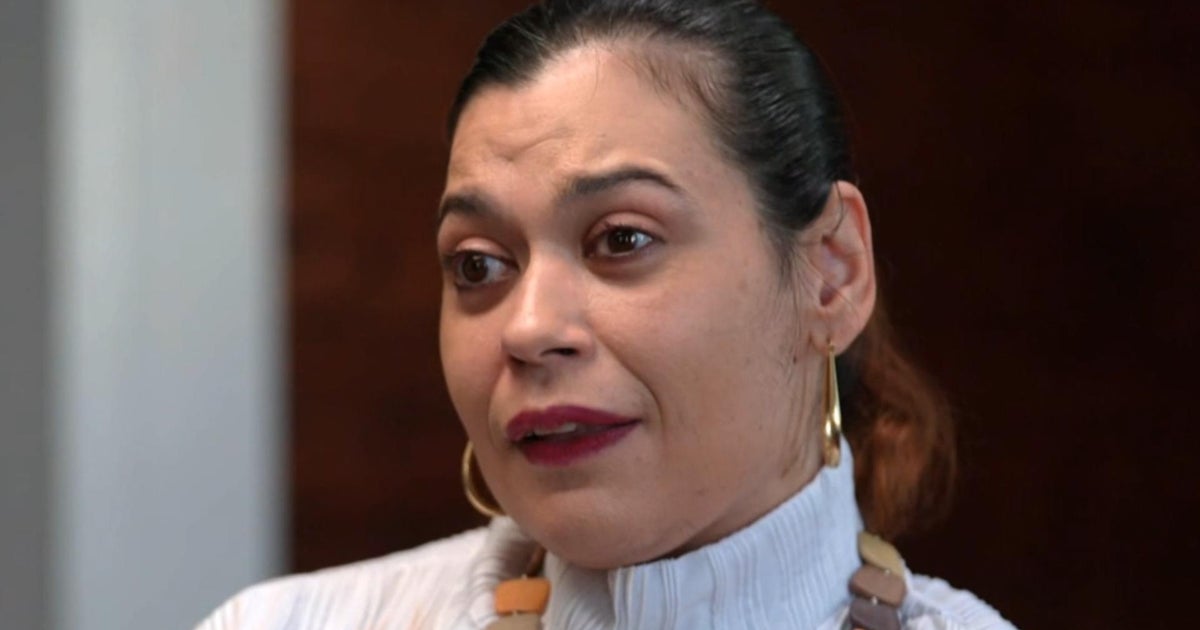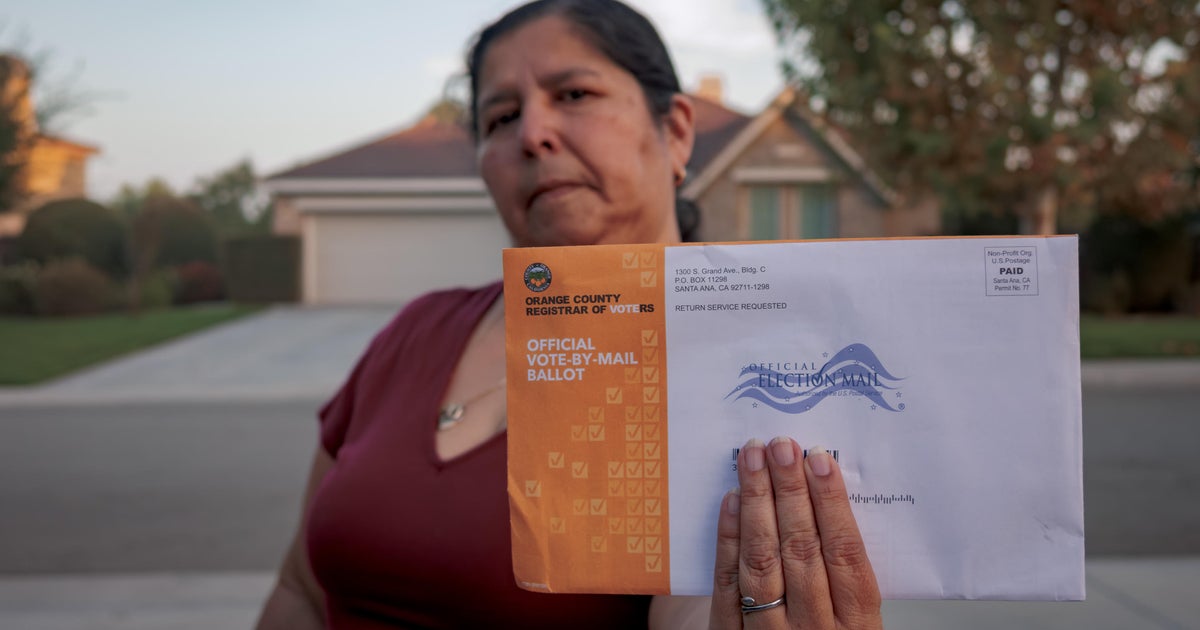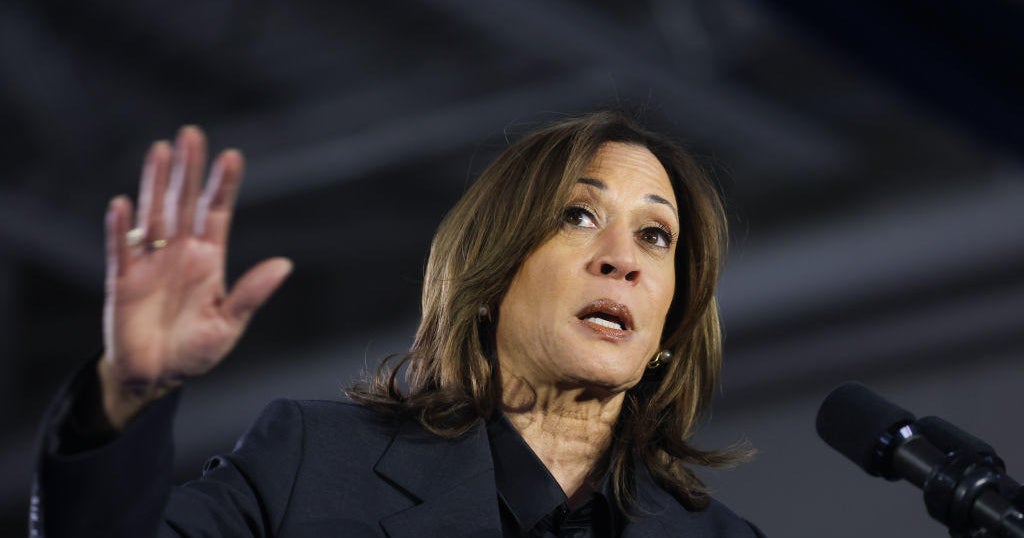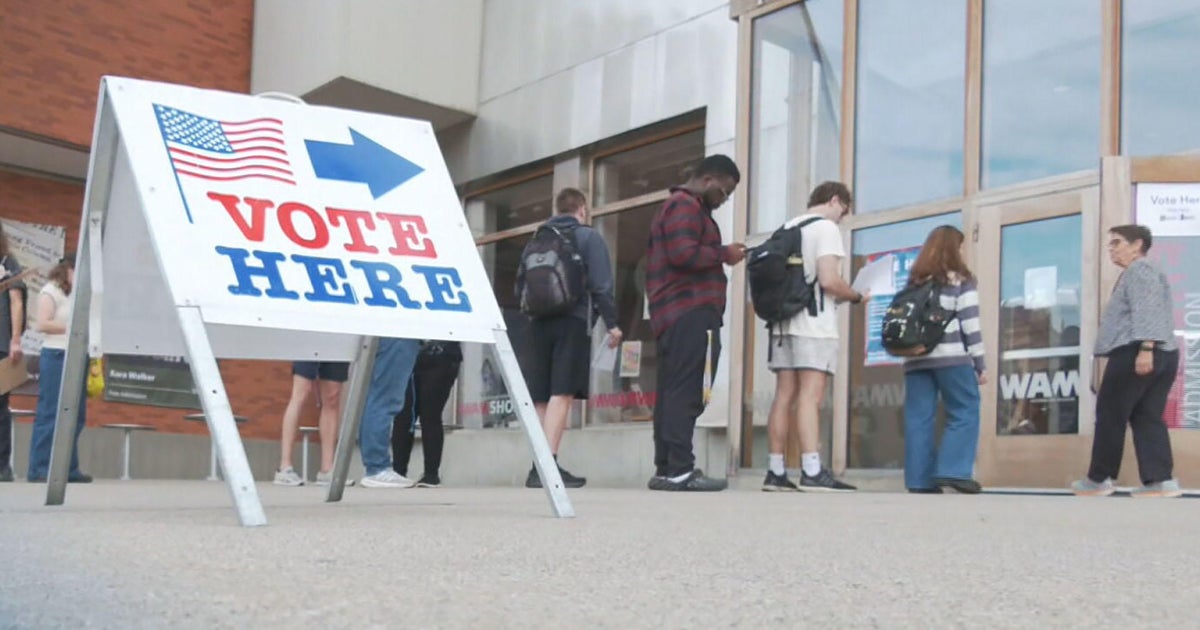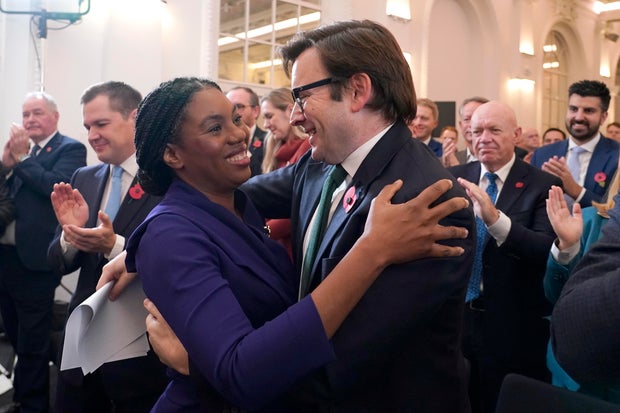CBS News
Arizona counties invest millions in new facilities to reassure voters of election security, transparency

Flagstaff, Arizona — Laura Huenneke, secretary of the Coconino County Democratic Party in Arizona, remembers what used to pass for an election day problem.
“A rattlesnake came into the facility one day and they had to shut down counting and evacuate people,” Huenneke told CBS News. “No election official today would tell you that they’re worried about rattlesnakes as their major disruption to voting or to counting.”
These days, in the battleground state of Arizona, where election denialism has been rampant, rattlesnakes are the good old days for Huenneke and her Republican counterpart William Culbertson, chair of the Coconino County Republican Committee. Together, they monitor vote counting in the county, which includes the city of Flagstaff.
“There’s always going to be somebody that has that raised eyebrow,” Culbertson said.
According to CBS News polling, 56% of Democrats and 26% of Republicans nationwide are “very confident” in their state’s ability to hold elections accurately and fairly, but 32% of Republicans are “not confident,” as opposed to just 8% of Democrats.
“All those processes are very much transparent,” said Eslir Musta, elections director for Coconino County, a mostly Democratic area. “…The goal is to kind of have this brutal transparency for the public.”
In Coconino County, that brutal transparency takes the form of about $1.5 million spent to upgrade the main vote-counting facility.
“The way I see it is it’s also like a reinvestment in some of, like, the pillars of our fundamental, like, contract with the public,” Musta said.
Arizona’s Pinal County, which is mostly Republican, also went on a spending spree, building a new facility of its own.
“How do you put a dollar sign on democracy?” Pinal County Recorder Dana Lewis asked.
The ballot boxes in Pinal County are equipped with GPS tracking devices, something Lewis says can reassure the public all election equipment is protected.
“I am able to track every one of these cages with a GPS unit on it within five feet of movement,” Lewis said.
It’s a sign of how local officials are trying to temper election skeptics, like those who falsely believe tabulation machines are connected to the internet.
Lewis explains that its tabulation system is a “closed gateway” in which everything that gets tabulated in its election facility goes into a “black box” that is located in the same room as the ballots. That box is not connected to anything outside the room, Lewis emphasizes.
That also applies to Coconino County.
“The tabulators are not connected to the internet,” Musta said.
It’s an investment that elections officials say is starting to pay off with voters.
“I think more people are coming around, so it’s getting better,” Culbertson said. “I still see a few skeptics.”
It’s a standard that Musta is ready to meet.
“There’s nothing to hide,” Musta said. “There’s never been anything to hide.”
CBS News
Britain’s Conservative Party picks Kemi Badenoch as leader after crushing election defeat
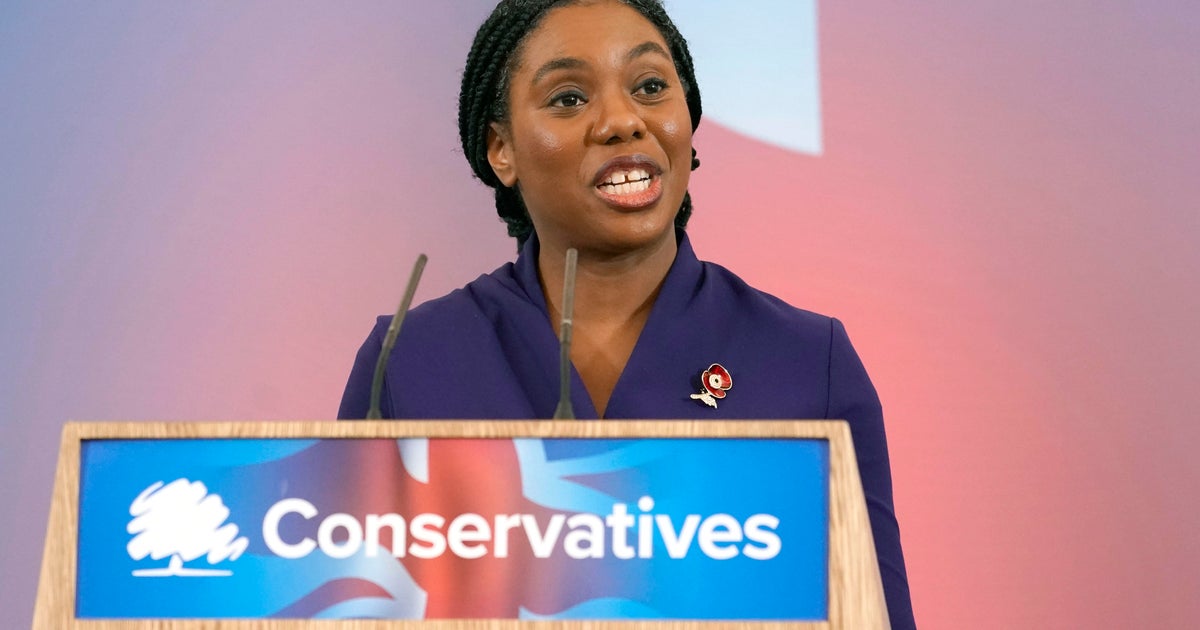
Britain’s Conservative Party on Saturday elected Kemi Badenoch as its new leader as it tries to rebound from a crushing election defeat that ended 14 years in power.
The first Black woman to lead a major British political party, Badenoch (pronounced BADE-enock) defeated rival lawmaker Robert Jenrick in a vote of almost 100,000 members of the right-of-center Conservatives.
She got 53,806 votes in the online and postal ballot of party members, to Jenrick’s 41,388.
Badenoch replaces former Prime Minister Rishi Sunak, who in July led the Conservatives to their worst election result since 1832. The Conservatives lost more than 200 seats, taking their tally down to 121.
The new leader’s daunting task is to try to restore the party’s reputation after years of division, scandal and economic tumult, hammer Labour Prime Minister Keir Starmer’s policies on key issues including the economy and immigration, and return the Conservatives to power at the next election, due by 2029.
Alberto Pezzali / AP
“The task that stands before us is tough but simple,” Badenoch said in a victory speech to a roomful of Conservative lawmakers, staff and journalists in London. She said the party’s job was to hold the Labour government to account, and to craft pledges and a plan for government.
Addressing the party’s election drubbing, she said “we have to be honest — honest about the fact that we made mistakes, honest about the fact that we let standards slip.”
“The time has come to tell the truth, to stand up for our principles, to plan for our future, to reset our politics and our thinking, and to give our party, and our country, the new start that they deserve,” Badenoch said.
A business secretary in Sunak’s government, Badenoch was born in London to Nigerian parents and spent much of her childhood in the West African country.
The 44-year-old former software engineer depicts herself as a disruptor, arguing for a low-tax, free-market economy and pledging to “rewire, reboot and reprogram” the British state.
A critic of multiculturalism and self-proclaimed enemy of wokeness, Badenoch has criticized gender-neutral bathrooms and government plans to reduce U.K. carbon emissions. During the leadership campaign she drew criticism for saying that “not all cultures are equally valid,” and for suggesting that maternity pay was excessive.
Tim Bale, professor of politics at Queen Mary University of London, said the Conservative Party was likely to “swing towards the right both in terms of its economic policies and its social policies” under Badenoch.
He predicted Badenoch would pursue “what you might call the boats, boilers and bathrooms strategy …. focusing very much on the trans issue, the immigration issue and skepticism about progress towards net zero.”
Alberto Pezzali / AP
While the Conservative Party is unrepresentative of the country as a whole — its 132,000 members are largely affluent, older white men – its upper echelons have become markedly more diverse.
Badenoch is the Tories’ third female leader, after Margaret Thatcher and Liz Truss, both of whom became prime minister. She’s the second Conservative leader from a non-white background, after Sunak, and the first with African roots. The center-left Labour Party, in contrast, has only ever been led by white men.
In a leadership contest that lasted more than three months, Conservative lawmakers reduced the field from six candidates in a series of votes before putting the final two to the wider party membership.
Both finalists came from the right of the party, and argued they can win voters back from Reform U.K., the hard-right, anti-immigrant party led by populist politician Nigel Farage that has eaten away at Conservative support.
But the party also lost many voters to the winning party, Labour, and to the centrist Liberal Democrats, and some Conservatives worry that tacking right will lead the party away from public opinion.
Starmer’s government has had a rocky first few months in office, beset by negative headlines, fiscal gloom and a plummeting approval rating.
But Bale said that the historical record suggests the odds are against Badenoch leading the Conservatives back to power in 2029.
“It’s quite unusual for someone to take over when a party gets very badly beaten and manage to lead it to election victory,” he said. “However, Keir Starmer did exactly that after 2019. So records are there to be broken.”
CBS News
Saturday Sessions: Hippo Campus performs “Paranoid”

Watch CBS News
Be the first to know
Get browser notifications for breaking news, live events, and exclusive reporting.
CBS News
How the United States is celebrating the Day of the Dead

Watch CBS News
Be the first to know
Get browser notifications for breaking news, live events, and exclusive reporting.



